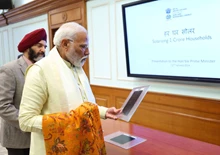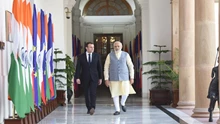
According to Saji Gopinath, Vice-Chancellor of Kerala University of Digital Sciences, Innovation, and Technology, the application of artificial intelligence (AI) in the rubber value chain will be a game changer in the near future, and the sector can realise more value through predictive analytics.
“The aggressive use of data transformation tools has resulted in new business models, new products and services with greater utility, and a new management culture,” he said.
During the weekend's Indian Rubber Meet, the Vice-Chancellor spoke on 'Efficient Use of Artificial Intelligence and Block Chain Technology in Rubber Marketing.'
According to John Baffes, Senior Agricultural Economist at the World Bank's Development Economics Prospects Group, non-energy prices are expected to rise 20% in 2022, with the greatest increase in commodities where Russia or Ukraine are key exporters.
He went on to say that the outlook is dependent on the length of the war and the severity of disruptions to commodity flows.
"The shock of the Ukrainian war, combined with the pandemic, has caused supply disruptions in a number of commodities, including energy, food, and fertilisers." "Most prices are expected to rise significantly in the current fiscal year and in the medium term," he said.
According to the most recent estimates, the global economy will grow at 2.9 percent in 2022, down from 4.1 percent in January 2022. Global inflation, on the other hand, has been revised upwards for both 2022 and 2023, he added.
“China's blockade could also have an impact on both supply and demand for industrial commodities. Policymakers should prioritise assisting poorer households facing rising food and energy costs. They can, in the long run, encourage energy efficiency improvements, facilitate investment in new zero-carbon energy sources, and promote more efficient food production," he added.











